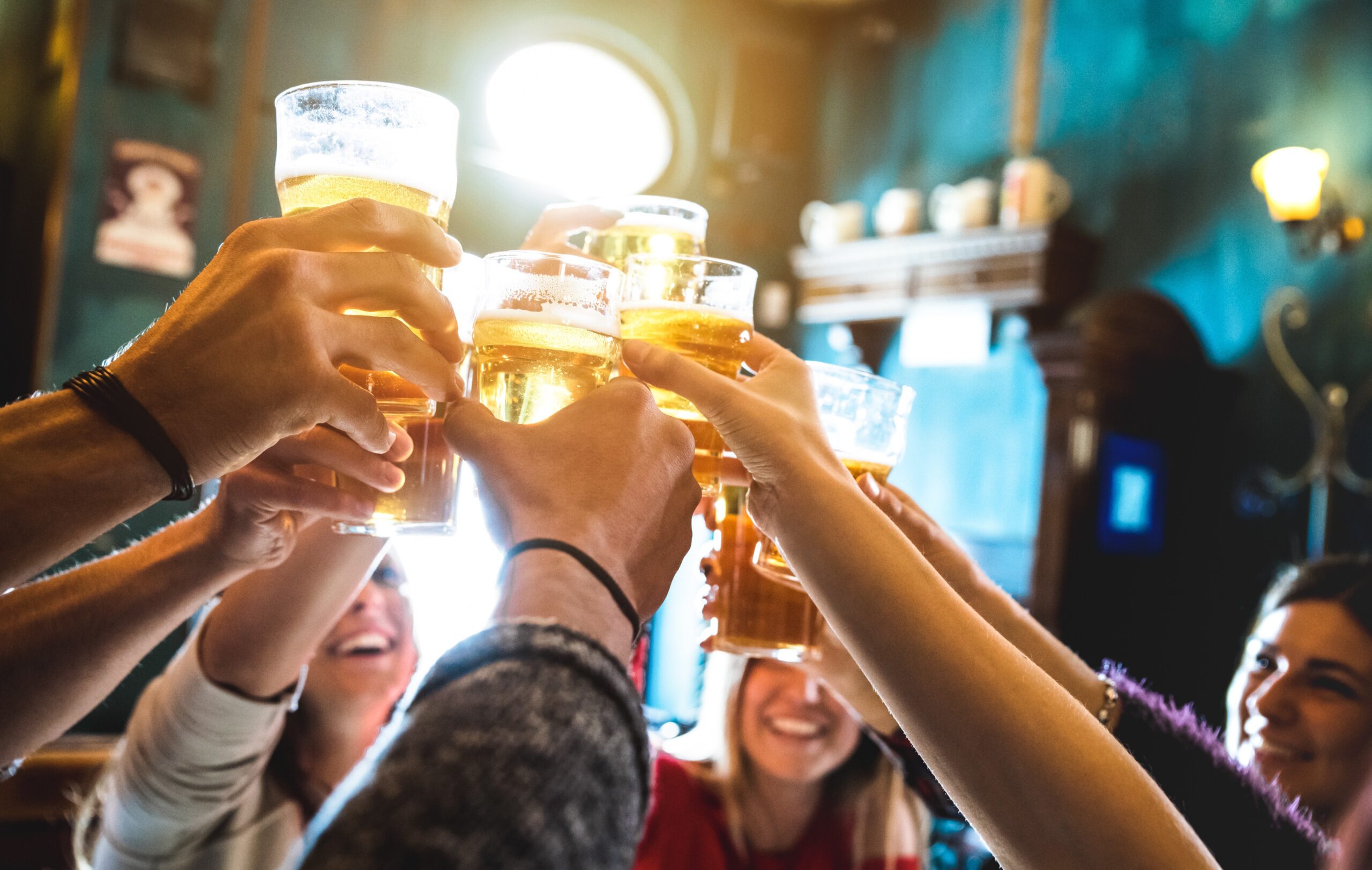

The holidays are marked by festive celebrations with family, friends and coworkers. Typically, alcohol flows freely at these celebrations, and it’s not uncommon to drink more at these events than you do during the rest of the year. But binge drinking has negative physical and emotional effects, and puts you – and others – at risk.
Most people know that drinking too much is bad for your liver. Consistent heavy drinking causes different types of inflammation in the liver, such as fatty liver, alcoholic hepatitis, fibrosis and cirrhosis. And any damage to the liver, including damage caused by alcohol, can lead to liver cancer.
Drinking affects other parts of your body as well. A single episode of binge drinking can damage your heart and throw off your heartbeat. In fact, the rate of deadly heart attacks spikes during the winter holiday season. This phenomenon is known as holiday heart syndrome. Binge drinking can also lead to high blood pressure and even stroke.
Further, a night of binge drinking can impair your immune system’s ability to fight infection for up to 24 hours, putting you at increased risk for colds, flu and other infections. Too much alcohol can also worsen medical and psychiatric conditions. Alcohol is a depressant and can exacerbate symptoms of depression and anxiety. It can also affect blood sugar levels in the blood of people with diabetes.
And that’s not all. Alcohol lowers inhibitions, and for some people, drinking too much releases pent-up anger and frustration. After drinking, these people may act on the their anger, which can result in violence and physical injury. And with lowered inhibitions, you’re more likely to engage in risky sexual behaviors, which can result in contracting a sexually transmitted disease.
Drinking too much can also be deadly. According to the National Institute on Alcohol Abuse and Alcoholism (NIAAA), an estimated 88,000 Americans die from alcohol-related causes annually. That makes alcohol the third leading preventable cause of death in the US.
In addition to having negative effects on your health and wellbeing, binge drinking is expensive. NIAAA notes that alcohol misuse costs the US $249 billion a year, and 75 percent of those costs are related to binge drinking. These costs include lost productivity, health care costs and criminal justice costs.
Another serious concern related to holiday drinking is the increase in people drinking and hitting the road. NIAAA reports that drunk drivers play a role in 40 percent of traffic deaths over Christmas and New Year’s. The institute notes that this figure is an increase of 12 percent over the rest of December.
The US Department of Transportation elaborates on NIAAA’s statistics. They report that 300 Americans die each year in the handful of days surrounding the Christmas and New Year holidays. They go on to report that an average of 27 people die each day in December due to drunk driving accidents. NIAAA notes that there is a 155 percent increase in DUI violations on New Year’s Eve alone.
One thing you should know about alcohol; it sneaks up on you. Typically, people don’t realize that their critical decision-making abilities and driving-related skills are already diminished long before they show any overt signs of intoxication. You may think you’re “okay to drive,” but you’re just fooling yourself. Your reflexes and judgment are impaired by the alcohol even if you don’t “feel” it.
Impairment is not determined by what you drink, but by the amount of alcohol you drink over time. Binge drinking is when you drink enough alcohol to bring your blood alcohol level up to the legal limit for driving, which is 0.08 in most states. Generally, this works out to about five alcoholic drinks for men and four drinks for women in less than two hours.
And don’t think that you’ll sober up and be able to drive once you’ve stopped drinking and had a cup of coffee. In reality, alcohol continues to affect your brain and body long after you’ve finished your last drink. The alcohol in your stomach and intestines continues to enter your bloodstream, resulting in impaired judgement and coordination for hours.
Coffee isn’t the answer. Caffeine may help with drowsiness in the short-term, but it does nothing to counter the effects of alcohol on decision-making and coordination. And then, when the caffeine wears off, you’ll feel post-caffeine sleepiness, which only compounds the depressant effects of the alcohol. Then, you can easily nod off or lose attention if you get behind the wheel.
You don’t have to skip the holiday party or abstain from alcohol altogether, but consider these tips for safer drinking:
• Have a snack before you leave for the party. When you drink on an empty stomach, the alcohol quickly passes from your stomach into your small intestine, where it is absorbed into the bloodstream and begins to affect your body.
• Make your first drink nonalcoholic. It keeps you from gulping down your first alcoholic drink.
• Alternate alcoholic and nonalcoholic drinks. Nonalcoholic drinks help counter the dehydrating effects of alcohol.
• Eat throughout the night. Food can slow the absorption of alcohol and reduce the peak level of it in your body by about one-third.
• If you are in an awkward situation, don’t escape by making a beeline to the bar. Walk around the room, mingle with other guests, check out the decorations, etc.
• Establish a designated driver who isn’t drinking or take a ride-share home and to the party.
You can still enjoy alcohol during the festivities, just use wisdom and moderation to keep yourself – and others – safe this holiday season!





Leave a Reply